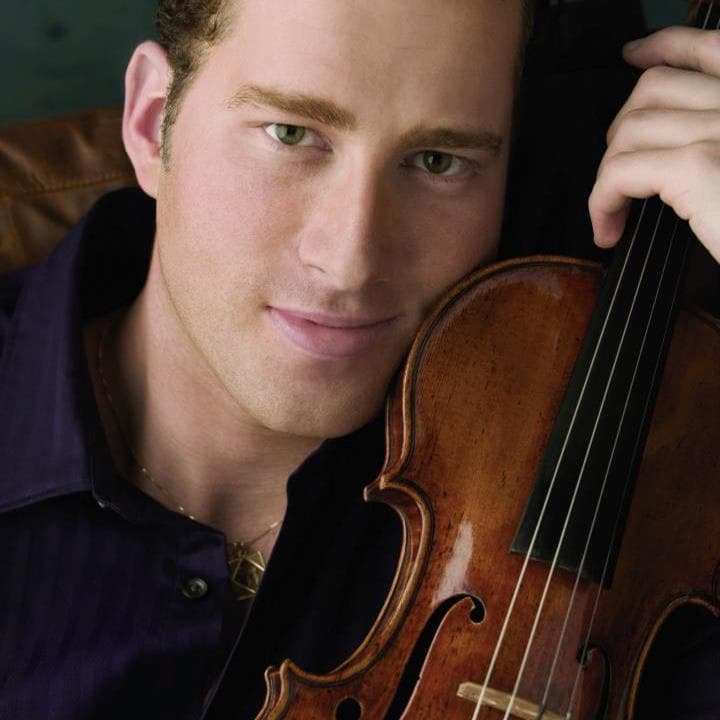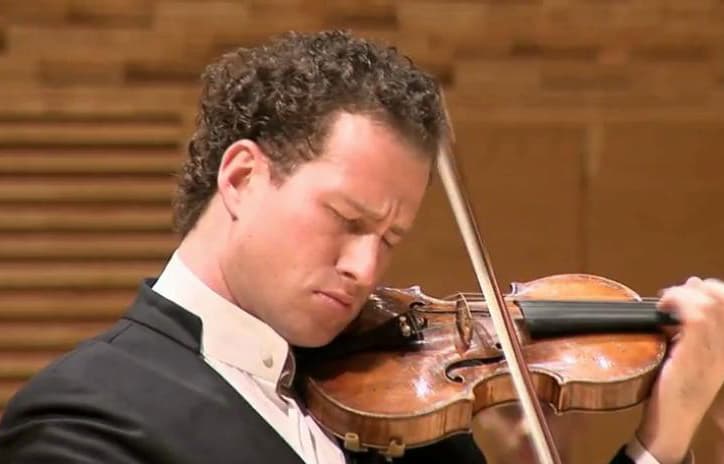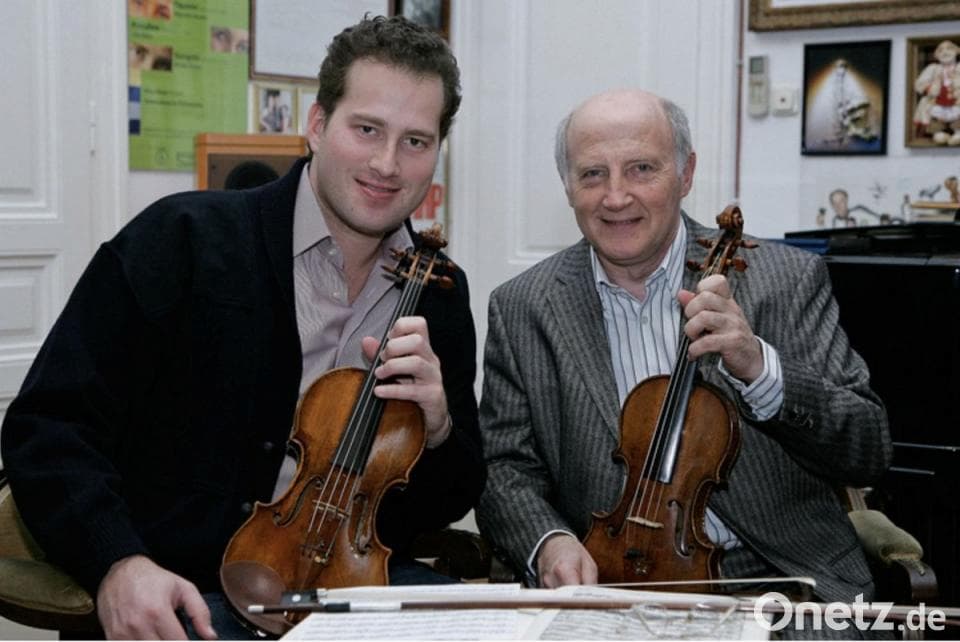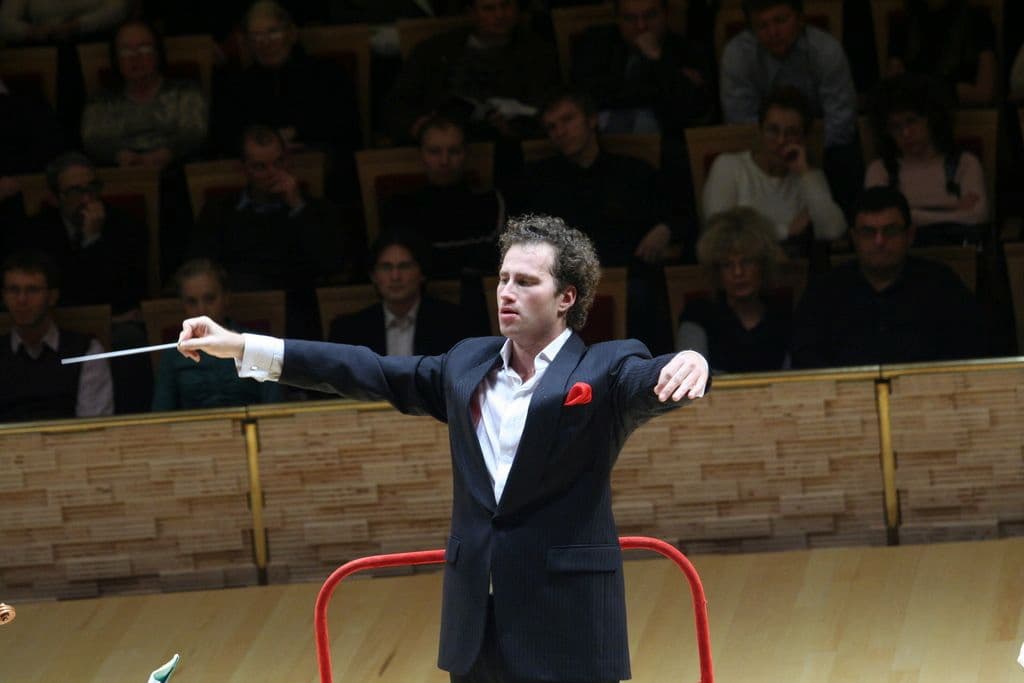As a virtuoso violinist, Nikolaj Szeps-Znaider maintains his reputation as one of the world’s leading exponents of the instrument with a busy calendar of concerto and recital engagements. Hailed for decades as one of the most gifted and perceptive violinists, Szeps-Znaider has successfully transitioned to the podium, bringing his violinist’s insight and profound musicality to the Orchestre National de Lyon. 2023/24 marks his fourth year as Music Director, and the partnership has already been extended until 2026/27.
Nikolaj Szeps-Znaider Performs Sibelius’ Violin Concerto in D minor, Op. 47
What’s in a Name

Nikolaj Szeps-Znaider
Nikolaj Szeps-Znaider was born on 5 July 1975 in Copenhagen, Denmark, to Polish-Israeli parents. For a good portion of his career, he was simply known as Nikolaj Znaider, but as he explained, “I was born Nikolaj Szeps-Znaider, and my name has always been Nikolaj Szeps-Znaider. In the late 1990s,’ some well-meaning folks, whose opinion I valued, advised me I would be better off with a simpler name when presenting myself on stage.”
Both his parents are called Szeps-Znaider, as they decided to preserve a double name and pass it on to the next generation. After watching a documentary about World War II, Szeps-Znaider came across more than a dozen Szepses who had lost their lives. “I was overcome by a strong sense that I simply couldn’t bear to be responsible for another Szeps disappearing from the world. So I made the decision to carry both names as I wish to honour my father and my father’s side of the family wherever I appear, privately as well as publicly.”
Edward Elgar: Violin Concerto in B Minor, Op. 61 (Nikolaj Znaider, violin; Dresden Staatskapelle; Colin Davis, cond.)
Isaac Stern

Nikolaj Szeps-Znaider
A child prodigy, Szeps-Znaider studied with some of the world’s greatest violin teachers, including Hungarian-born Ilona Fehér, a student of Jenő Hubay. She guided Szeps-Znaider during his childhood, and Milan Vitek taught him at the Royal Danish Academy of Music. He also took lessons from the legendary Dorothy DeLay at the Juilliard School of Music, but he vividly remembers when Isaac Stern came to Denmark. Nikolaj was only 12, and it was arranged for him to play for Stern.
Apparently, Stern told his parents that “I was a very talented boy, but that I didn’t know what I was doing.” Stern told them that he needed lessons in music harmony, theory, and history. So they got some funds together to pay for private tuition for Nikolaj to study with Axel Matthiesen, a theory and analysis professor. “He taught me like he taught his composers, he was quite brutal. He was famous for telling people, maybe you should find another job, but I was sitting in his advanced theory and harmony class, doing analysis of Mozart and Brahms.”
Nikolaj Szeps-Znaider & Orchestre National de Lyon perform Bach: “Ich ruf zu dir,” BWV 639
Boris Kuschnir

Nikolaj Szeps-Znaider and Boris Kuschnir
By 1994, Szeps-Znaider had won first prize at the Carl Nielson International Violin Competition, and he was ready to conquer the stages of the world, but things didn’t feel right. “I wasn’t happy with the way I was playing at the time,” he told Strings Magazine, “I felt that something was lacking and that I wasn’t entirely going the right way. So he went to see the Russian pedagogue Boris Kuschnir in Vienna, and after playing for him for 15 minutes and talking to him for 15 minutes, “Kuschnir was able to pinpoint my concerns.”
Szeps-Znaider considers Kuschnir the “greatest violin magician,” who told him how to “walk again.” For three weeks, Szeps-Znaider was only playing on open strings. “You can learn a lot,” he explains, “the quality of bow change, for instance, how to distribute the weight throughout the strokes, which is very important for the sound production, and also to kind of train the right hand. What I was lacking at the time was the flexibility and the strength in the right hand. So we broke down all the movements you make in a bow change and did them separately.”
Carl Nielsen: Violin Concerto, Op. 33, FS 61 (Nikolaj Znaider, violin; London Philharmonic Orchestra; Lawrence Foster, cond.)
Queen Elisabeth Competition

Nikolaj Szeps-Znaider
Szeps-Znaider’s hard work was paying off, as three years after having essentially relearned the violin, he won the most coveted and respected prize of the violin world, the first prize in the Queen Elisabeth Competition in Brussels. Critics were unanimous in their praise, and Yehudi Menuhin announced him as the “successor of Ysaÿe.” He remembers that the competition was very hard, “but I was lucky. I had some financial support, and I was able to bring my pianist and my teacher with me.”
Szeps-Znaider still sees competitions as ideal opportunities for young unknowns to achieve recognition. “If you do not have the luck at an early age to be discovered by someone, a record label or an agent, then you have to go out and look for that luck. Competitions prepare you as much as possible for the life of a touring violinist.” Szeps-Znaider hasn’t stopped searching. “When I was younger, people would say to me, you’re talented but what you need is life experience. Now I finally know what they were talking about. It’s the will to search; that’s what makes us whole.”
For more of the best in classical music, sign up for our E-Newsletter
